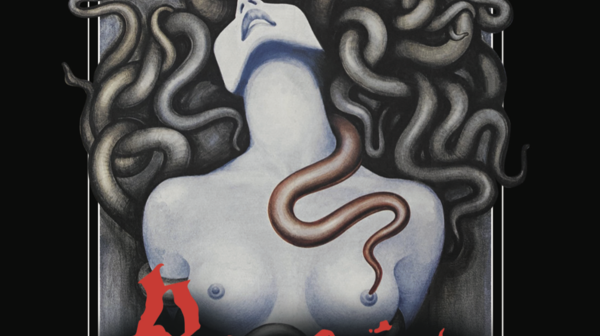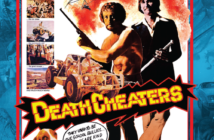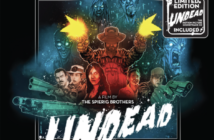Some films have an impact. Released in 1981 Possession is a psychological assault. It’s the kind of film that redefines cinema. It’s absolutely audacious, a singular visceral vision that will have you reeling and questioning everything – particularly reality.
It’s difficult to know what this is. It’s definitely a horror film, but what is the horror? Set in West Berlin – almost on top of the wall, there’s the ever-present menace of political repression, yet it’s also about the disintegration of a marriage, or perhaps it’s even a creature feature. There’s never been horror like this, filled with so much nervous tension. The entire film is fuelled by anxious adrenalin.
It’s the work of Polish director Andrzej Żuławski, who previously had his 1975 film On The Silver Globe shut down mid production in Poland by the communist authorities. Possession is his first (and I think only) English language film. In the extra features he admits that Possession is autobiographical, inspired by the affair and subsequent divorce with his first wife.
It’s difficult to convey how heightened Possession is. The emotions are raw, the acting is feverish, it’s basically 124 minutes of hysteria. As the American co screenwriter Frederic Tuten says in his audio commentary, it’s a film ‘operating at the highest pitch of human emotion.’ There’s never been another film like it, blurring reality, fantasy, metaphors and symbolism into one strange fantastical brew. Make no mistake this film is totally nuts.
Mark (a very young Sam Neil) returns from a mysterious assignment (we’re assuming on the other side of the wall) to find his relationship with his wife Anna (Isabelle Adjani) has deteriorated dramatically. There’s another man and she wants a divorce. But why is she acting so peculiarly? Nothing really makes sense.
Filmed in bleak greys, blues and whites, the camera is always moving, echoing the feverish frenzy of the onscreen action, with long takes following the characters yet also moving of its own volition, Żuławski’s camera makes you breathless. It’s ridiculously tense, even if at times you’re not sure why.
There are a few iconic and incredibly disturbing scenes, particularly from Adjani who would go on to win best actress in Cannes for what is a truly an incredible gut wrenching performance. She goes deep. Though Neil is also extraordinary as the anchor of the film.
They also enlisted special fx guru Carlo Rambaldo (ET/ Alien/ Deep Red); in fact the story of his involvement as told by Żuławski is the extras is pretty funny. Initially approached HR Geiger who passed them onto Rambaldo. Arriving in Germany he was shocked to learn that they only had one day to shoot, saying on Close Encounters of the Third Kind he had 3 weeks. But that’s what this production was all about; a strange, powerful, extreme artistic vision shot on the smell of an oily rag. Possession is a European arthouse film that masquerades as a horror film, the horror of two people tearing each other apart. Its multi layered metaphorical and nothing short of demented. It truly is a remarkable achievement. It’s the kind of film that you envy people who get to see it for the first time.
As part of the Beyond Genres series, this disc is brimming with a ridiculous array of extras – over 4 hours worth. Aside from the aforementioned feature length commentary from Tuten, there’s also a frequently hilarious and uncompromising commentary from Żuławski, where offers such chestnuts like ‘No one wants to bite anymore, they want to lick.’ And ‘I don’t give a heck for audiences Western or Eastern, I’m the audience.’ As you can gather Żuławski is one of those larger than life male directors – a curious mix of Jodorowsky and Haneke. Listening to his commentary is like going to film school.
Elsewhere we get an interview with the producer Christian Ferry and also with composer and childhood friend Andrzej Żuławski who discuss his really unique score. There’s a making of featurette, even a feature on Berlin. There’s also the entire US version of the film, which hacked out about 40 minutes and added strange optical images, even over dubbing things like demonic laughter to make it more like a horror film. It sounds terrible. It’s quite ironic that Żuławski left communist Poland for the freedom to have his work butchered by the Americans. I’m sure there’s a metaphor in there somewhere.




